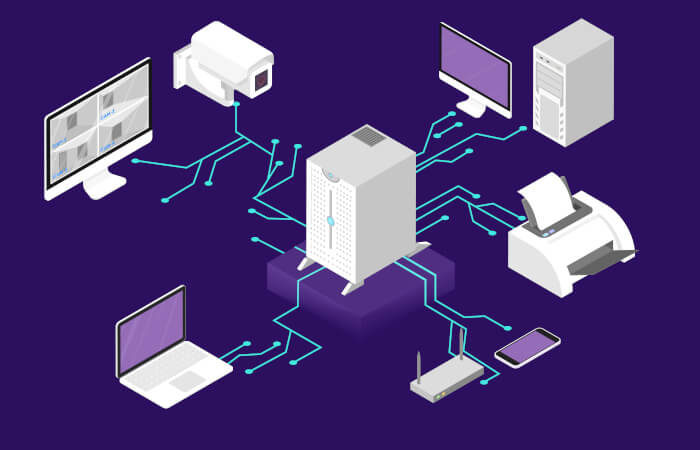JuiceFS is a distributed POSIX file system built on top of Redis and S3.
It’s designed for the cloud-native environment. The data, stored via JuiceFS, will be persisted in Object Storage (e.g. Amazon S3), and the corresponding metadata can be persisted in various compatible database engines such as Redis, MySQL, and TiKV based on the scenarios and requirements.
With JuiceFS, massive cloud storage can be directly connected to big data, machine learning, artificial intelligence, and various application platforms in production environments
This is free and open source software.
Features include:
- Fully POSIX-compatible: Use as a local file system, seamlessly docking with existing applications without breaking business workflow. JuiceFS also provides close-to-open consistency, atomic metadata operations, mmap, fallocate with punch hole, xattr, BSD locks (flock), and POSIX record locks (fcntl).
- Fully Hadoop-compatible: JuiceFS’ Hadoop Java SDK is compatible with Hadoop 2.x and Hadoop 3.x as well as various components in the Hadoop ecosystems.
- S3-compatible: JuiceFS’ S3 Gateway provides an S3-compatible interface.
- Cloud Native: A Kubernetes CSI Driver is provided for easily using JuiceFS in Kubernetes.
- Shareable: JuiceFS is a shared file storage that can be read and written by thousands of clients.
- Strong Consistency: The confirmed modification will be immediately visible on all the servers mounted with the same file system.
- Own storage format offering good performance: The latency can be as low as a few milliseconds, and the throughput can be expanded.
- Data Encryption: Supports data encryption in transit and at rest.
- Global File Locks: JuiceFS supports both BSD locks (flock) and POSIX record locks (fcntl).
- Data Compression: JuiceFS supports LZ4 or Zstandard to compress all your data.
Website: github.com/juicedata/juicefs
Support:
Developer: Juicedata, Inc
License: Apache License 2.0
JuiceFS is written in Go. Learn Go with our recommended free books and free tutorials.
| Popular series | |
|---|---|
| The largest compilation of the best free and open source software in the universe. Each article is supplied with a legendary ratings chart helping you to make informed decisions. | |
| Hundreds of in-depth reviews offering our unbiased and expert opinion on software. We offer helpful and impartial information. | |
| The Big List of Active Linux Distros is a large compilation of actively developed Linux distributions. | |
| Replace proprietary software with open source alternatives: Google, Microsoft, Apple, Adobe, IBM, Autodesk, Oracle, Atlassian, Corel, Cisco, Intuit, SAS, Progress, Salesforce, and Citrix | |
| Awesome Free Linux Games Tools showcases a series of tools that making gaming on Linux a more pleasurable experience. This is a new series. | |
| Machine Learning explores practical applications of machine learning and deep learning from a Linux perspective. We've written reviews of more than 40 self-hosted apps. All are free and open source. | |
| New to Linux? Read our Linux for Starters series. We start right at the basics and teach you everything you need to know to get started with Linux. | |
| Alternatives to popular CLI tools showcases essential tools that are modern replacements for core Linux utilities. | |
| Essential Linux system tools focuses on small, indispensable utilities, useful for system administrators as well as regular users. | |
| Linux utilities to maximise your productivity. Small, indispensable tools, useful for anyone running a Linux machine. | |
| Surveys popular streaming services from a Linux perspective: Amazon Music Unlimited, Myuzi, Spotify, Deezer, Tidal. | |
| Saving Money with Linux looks at how you can reduce your energy bills running Linux. | |
| Home computers became commonplace in the 1980s. Emulate home computers including the Commodore 64, Amiga, Atari ST, ZX81, Amstrad CPC, and ZX Spectrum. | |
| Now and Then examines how promising open source software fared over the years. It can be a bumpy ride. | |
| Linux at Home looks at a range of home activities where Linux can play its part, making the most of our time at home, keeping active and engaged. | |
| Linux Candy reveals the lighter side of Linux. Have some fun and escape from the daily drudgery. | |
| Getting Started with Docker helps you master Docker, a set of platform as a service products that delivers software in packages called containers. | |
| Best Free Android Apps. We showcase free Android apps that are definitely worth downloading. There's a strict eligibility criteria for inclusion in this series. | |
| These best free books accelerate your learning of every programming language. Learn a new language today! | |
| These free tutorials offer the perfect tonic to our free programming books series. | |
| Linux Around The World showcases usergroups that are relevant to Linux enthusiasts. Great ways to meet up with fellow enthusiasts. | |
| Stars and Stripes is an occasional series looking at the impact of Linux in the USA. | |
